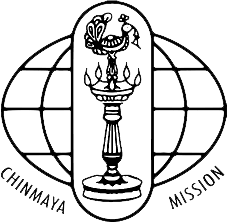Chapter III (Verse 19) & Chapter IV (Verse 20)
Karma Yoga – The Yoga of Action
Chapter III
Verse 19
तस्मादसक्तः सततं कार्यं कर्म समाचर ।
असक्तो ह्याचरन्कर्म परमाप्नोति पूरुषः ॥ ३-१९॥
Therefore, always perform actions which should be done, without attachment; for, by performing action without attachment, man attains the Supreme.
We have already noticed that Krishna pre-supposes no knowledge in his friend, nor does he thrust upon Arjuna bare statements that are to be blindly believed and silently swallowed by him. Proselytisation is not the technique of Vedanta. Hindus are strangers to it. Every strong statement of fact is preceded by a line of logical thoughts explained at length. Till now Krishna was explaining the ‘wheel-of-action,’ and after exhausting the exposition of this entire theory, he, in this stanza, is crystallising his conclusions encouraging Arjuna to act.
Therefore, always perform actions which are obligatory in your present social status, in your domestic situation, as a member of your community and the nation. Even here, Krishna is repeating his warning to Arjuna that he must be careful in all his activities, to keep his mind away from all dangerous “attachments.” The Lord has already explained how “attachments” directly help to form tendencies in the mind and deepen fresh vasana impressions within.
Jnana Karma Sanyasa Yoga – The Yoga of Renunciation of Action with Knowledge
Chapter IV
Verse 20
त्यक्त्वा कर्मफलासङ्गं नित्यतृप्तो निराश्रयः ।
कर्मण्यभिप्रवृत्तोऽपि नैव किञ्चित्करोति सः ॥ ४-२०॥
Having abandoned attachment to the fruits-of-action, ever content, depending on nothing, he does not do anything, though engaged in actions.
We are not asked here to renounce the fruits-of-actions as such nor to ignore them, but we are only warned to renounce our MENTAL SLAVERY and INTELLECTUAL CLINGING to the “expected-fruits.” Only when we get preoccupied with the expected fruits of our actions do we come to exhaust ourselves, and thus become inefficient in our activities. Forsaking (tyaktwa) our clinging (Sanga) to the fruits-of-action (Karma-phala), we are advised to strive for and to achieve the welfare of the society.
A true painter never willingly sells his masterpiece! To him, that piece of canvas upon which he has lavished long periods of effort, is now by itself a complete reward, even if he be starving!! As compared to the satisfaction and joy that it gives to the painter, he feels that even all the wealth in the world would but be too little a payment for it. If a mere finite piece of art could thus give to an ignorant man of agitations and desires, such an invaluable joy, how much more intense must be the diviner joys of a perfect saint working in the world of names and forms? Indeed, the Self-realised Ones, after their experience of the Infinite Reality as their own Self, become perfectly independent of everything else.
Again, the anxiety for the fruits-of-action, the sense of discontentment and the feeling of dependency upon the things and beings of the world — all belong to the misconceived notion of the ego-centre. The ego in us is the sufferer of all the above-mentioned incapacities and inabilities. When the seeker-after-Truth rediscovers his ego to be the Infinite Truth, the limited ego ends its career of sorrow, and naturally, the agony and the incapacities of the imperfect ego also end. The reflection of the sun in a cup of water can be broken up when the water in the cup is shaken. But when the water is poured out, the reflection also ends, and no more can the sun in the sky be shaken by any known method.
Such an individual, who has rediscovered the Self, “THOUGH SEEMINGLY ENGAGED IN ACTIVITY,” does not do anything.
The body, mind, and intellect act in the world-of-objects, but not the All-pervading Self — the Life — in us. Without ‘Life’ the body cannot function; but when the body functions, ‘Life’ as such cannot be said to function. Therefore, one who is established in the Self, though he engaged himself in action, cannot be said to do any action. The train may move but it would be incorrect to say that the steam is moving.
It is generally a doubt in the students that, even if all the reactions of the past actions have ended at the time of Self re-discovery, when such a prophetic Master undertakes activity in the world, he would, perhaps, be initiating new actions of sins and merits for the enjoyment of which he may again have to take up births. This false idea has been completely eradicated in this stanza. After the God experience, when the saint functions in the world outside, “THOUGH ENGAGED IN ACTION HE DOES NOT DO ANYTHING.”
